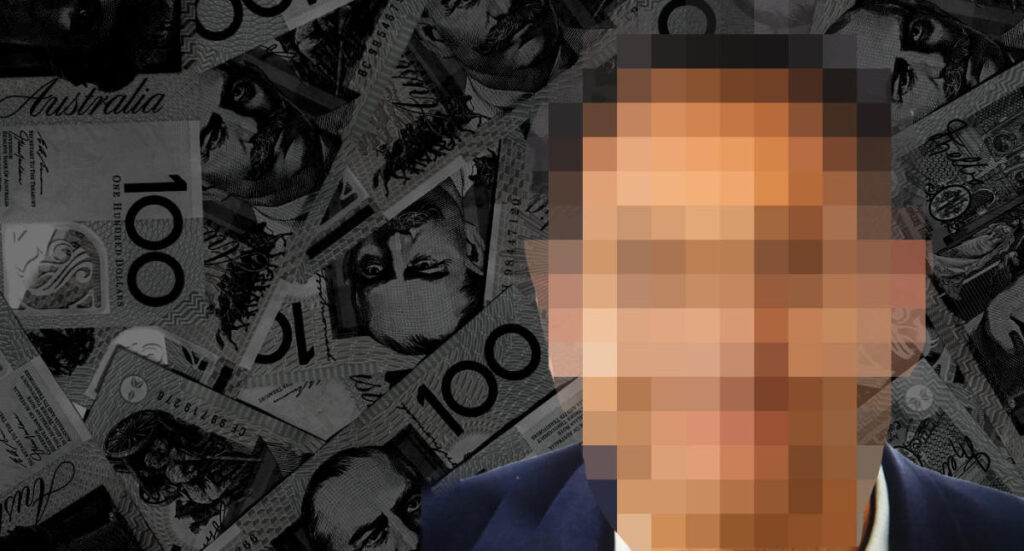When Lee*'s best friend approached him about investing in a growing event management business, he was excited at what he thought was a “novel investment.” But it ended not only his friendship, but also a longtime romantic relationship.
“Beyond the money issues, it was the toughest, most harrowing financial experience of my life,” Lee said. “Hands down.”
Lee had previously invested in businesses run by friends and family, putting in “$20,000 to $30,000” at the time, he said, but this time, backed by a stronger financial position, he put in more than $50,000.
Other friends were also investing, which made it even more appealing, he said.
“This investment has brought more than just financial benefits,” Lee said. “This was something we could potentially do with friends and anyone else who was interested.”
Do you have a story to share? Get in touch with us at yahoo.finance.au@yahooinc.com
Communication was patchy from the start, but initially Lee let it slide.
“There was a part of me that was like, oh, maybe she's just really busy. When these events come on, it's absolutely nonstop,” he said.
“It wasn't until probably about two months later that I started to panic. I reached out, I emailed, but I never heard anything back. Months went by and I think I only got one or two emails.”
“Then a few months later they called me and said, 'Essentially everything is gone. Is there anything I can do for you?'”
Mr Lee said he felt “totally betrayed” and “certainly a total loss for a friend”.
Devastating impact
But that friendship wasn't the result of a bad relationship: The friend who ran a business Lee invested in was a woman, which caused problems for Lee's partner.
“In some ways it's a purely financial relationship, but it's an important one nonetheless,” Lee said of his investment.
“When you invest a lot of money with your friends, it makes the relationship deeper.”
This huge investment caused conflict with his partner and ultimately led to the end of their long-standing relationship.
If you have a partner or family [who] Your friends might know it too, you'll be surprised. [how] That could affect that dynamic,” Lee said.
“No matter how well you know each other, make everything official.”
Lee said that although he had signed a contract with his friend, “it may not have been a very professional contract and that may have come back to haunt me later… but I thought of her as a friend, so I guess I didn't expect to be cheated on the legal side.”
Experts Yahoo Finance Anyone considering investing should treat an investment in a friend or family member's business with the same caution as any other significant investment.
“When it comes to friends, they may have known each other for 10, 15, 20 years, so often they prefer to keep their relationships informal,” said Agita Antoon, a lawyer with Double Eight Legal.
“'He's like my brother and she's like my sister and I trust them. We don't have to agree.'
“But business is business, and a lot of people lose friendships and relationships over money, so make sure you formalize it in contracts, whether that be loan agreements, shareholder agreements, or whatever it is that spells out exactly what the terms are.”
Antoon says investors should always see a business plan because “even if you're not an expert, it gives confidence to the person seeking capital that you know what you're doing and that you've done all your research.”
Lack of communication can lead to problems
Christopher Fong is the founder of Xoogler.co, a community that connects ex-Googlers including matching entrepreneurs with investors, and Xoogler Ventures, which has invested in over 100 startups.
He said investors tend to be more receptive to losing their investment in an individual business (which is often highly diversified) if founders keep them updated.
“If you send out regular reports and are transparent with your investors, your friends and family shouldn't actually be upset. If you don't communicate regularly, problems start to arise,” he explained.
Grace Bacon, a financial adviser at RSM Financial Services, said even if business owners take the right steps, relationships may not be able to survive if investments sour. “It's very difficult” to separate emotions from financial decisions…When things go wrong, relationships are likely to be damaged,” she said.
She said investors need to be clear about why they are investing in the businesses of their close friends and family.
“Is this a financial decision with the expectation of benefiting from it? Or is it simply a gift to help someone, with no expectation of anything in return?” she said.
One of her clients invested in a friend's startup, hoping for a guaranteed return that would help him save for retirement, but the business failed.
“Eventually, she lost her funding and the relationship between her and her friends became very strained,” Bacon said.
Lee said he's still open to investing in friends and family's businesses, but “I'll try to keep the risk low. I've certainly learned a lot.”
*The title and story content have been changed.
To get the latest Yahoo Finance news, follow us Facebook, LinkedIn and Instagram.


